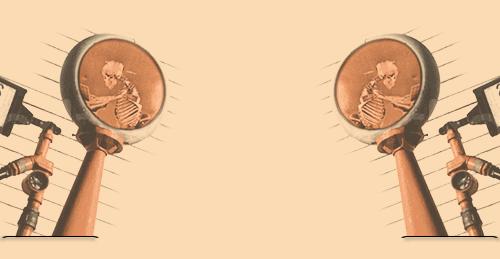Two Poems
Hédi Kaddour was born in Tunisia in 1945, but has lived in France since childhood. He has published three books of poems with Gallimard: La Fin des vendanges (1989), Jamais une ombre simple (1994) and Passage au Luxembourg (2000), as well as three books with smaller publishers, and a collection of essays on poetry, L'Emotion impossible. He lives in Paris, teaches comparative and French literature, drama, and creative writing at L'Ecole Normale Supérieure in Lyon, and writes a quarterly column on theater for La Nouvelle revue française Other poems of his, in Marilyn Hacker's translation, have appeared in APR, The New Yorker, The Paris Review, Poetry, Poetry International, Poetry London, PN Review, Prairie Schooner and Verse. His work combines sensuality with erudition and wit, questions the structures of syntax itself, and often dialogues with classical forms.
Récréation
Tu lis Jean-Claude Renard, Kenneth White
ou Benjelloun la plume à la main, car aujourd'hui
Hölderlin ou Montaigne te font peur; tu appelles cela
piller les zozos, mais de peu, car c'est vraiment
trop mou, même le soleil, comme chez ceux
qui pour garder leurs femmes les enlaidissent. Alors
l'inspiration, bien sûr; mais pourquoi faut-il
qu'elle n'apparaisse jamais qu'à l'heure du repas
ou de la sieste ? Il vaut mieux se confier
à la promenade en compagnie de Philarion, drathaar
parfaitement désobéissant
et rouleur de caniches
dans les débris de coquillages venus du temps
infatigable; et te voilà comme un flûtiste en exercice
de respiration continue, devant les cormorans,
les pétrels, et les couples de retraités du bord de mer
qui ramassent doucement fin octobre le bois mort
des plages, tout cela dans les transparents échanges
des silicates et du lointain: c'est le vent nocturne
de la terre qui a rendu l'air si vif, et si claires
les libellules copulant en plein vol comme des forcenées
de la grande lumière; et quand tu as relevé les yeux
pour voir ce qu'en pensait la promeneuse
aux seins nus, elle était déjà dix mètres derrière toi.
Recess
You read Jean-Claude Renard, Kenneth White
or Ben Jelloun, pen in hand, because today
Hölderlin or Montaigne scare you; you call this
looting the nitwits, but not of much, because
it’s really too lame, even the sun, like those men
who, to keep their wives faithful, make them ugly. Then
there’s inspiration of course, but why must it
always come only at mealtimes
or during a nap?
Better to go for a walk
accompanied by Philarion, perfectly
disobedient drathaar,
and poodle-humper
in the shell-debris washed up from tireless
time; and there you are like a flautist
doing endless breathing exercises in front of the cormorants
and petrels and the retired seaside couples
who at the end of October mildly collect driftwood
on the beach, all that in the limpid exchange
of silicates and distance: it’s the earth’s
night wind that’s made the air so brisk, and made
the fireflies so bright, copulating in flight like
fresh-air fanatics; and when you raised your eyes to see
what the bare-breasted stroller thought of all this
she was already ten yards behind you.
translated by Marilyn Hacker
Les Coquelicots
Et c'est peut-être vrai que le destin
avait commencé par agioter entre les cascades
et les grands arbres qui sont l'orgueil là-bas
du regard des maîtres quand ils consentent
à délaisser le cul des cousines appauvries.
Qui sait la vérité? Celui qui a frapp
et celui qui a reçu les coups. Etait venue
d'un Oberland à silences pas très propres
et vivait avec eux, disait l'eau doit bouillir,
et les femmes ont de nouvelles responsabilités,
aimait aussi dans l'herbe remercier le Dieu
du soleil et des spasmes vaginaux,
et quand
on a mis le feu à tous les coquelicots d'Europe,
elle a crié Les peuples! Et à Kiental, chez moi,
les socialistes! Mais, les arabes, vous savez,
le baroud, son mari la fit taire, partit premier,
revint avec la croix, la jambe en moins, liste
de Mohammed morts à Verdun. Elle criait C'est
de la folie, pas vous, il y a là-bas en Russie,
elle trimbalait son estropié, ça l'avait rendue
folle, oui, pas "d'intelligence avec l'ennemi",
il faut savoir, même pour vingt ans, soigner
les femmes de héros, a dit le procureur.
The Poppies
Fate, perhaps it’s true that it began
by trading on the futures of waterfalls
and tall trees, the pride there
on the masters’ faces when they deign
to spare the asses of their threadbare female cousins.
Who knows the truth? The one who struck the blows
and the one who was beaten. She came
from an Oberland of soiled silences
and lived with them, said “Water will boil,”
and “Women now have new responsibilities”;
also loved, stretched in the grass, to thank the God
of sunlight and vaginal spasms, and when
they had set fire to all the poppies of Europe
she cried out “The people! And in my land, in Kiental,
the socialists! But Arabs, you know
how they brag… Her husband shut her up, left first
came back plus a medal, less a leg, list
of all the Mohammeds dead at Verdun. She exclaimed “It’s
madness, not you, there in Russia,”
she hauled her cripple around, it drove her mad,
yes, “no dealings with the enemy”,
you must be able, even for twenty years
to take care of heroes’ wives, said the prosecutor.
translated by Marilyn Hacker



